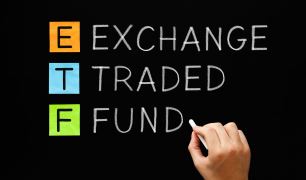Index Fund
Index funds may be a quite shared asset or trade exchanged asset (ETF) with a portfolio developed to match or track the parts of a monetary market file, just like the Standard and Poor’s 500 Index (S&P 500). Index mutual funds are said to allow expansive market openness, low working costs, and low portfolio turnover.
These assets follow their benchmark file paying little mind to the condition of the business sectors.
Index funds are for the foremost part thought to be ideal center portfolio property for retirement accounts, for instance, individual retirement accounts (IRAs) and 401(k) accounts. As against picking trip individual stocks for the venture, he has said, it bodes well for theconventional financial backer to buy all of the S&P 500 organizations for the minimal price a file store offers.
ETF
An ETF represents Exchange Traded Fund, which is dissimilar to customary Mutual Funds exchanges like a typical stock on a stock trade.
The units of an ETF are normally purchased and sold through an enlisted representative of a perceived stock trade. The units of an ETF are recorded in stock trades and the NAV differs according to advertise developments.
Since units of an ETF are recorded in the stock trade just, they are not purchased and sold like any typical open-end value store. A financial backer can purchase however many units as she wishes with next to no limitation through the trade.
ETF vs index fund
For most financial backers checking out less difficult arrangements, detached assets offer the degree of straightforwardness and returns which can coordinate with that of a list.
https://www.earnmoneyflow.com/how-to-become-an-expert-in-the-stock-market/
- Passive contributing is the most essential type of placing one’s cash in common assets (MFs) and the reason for this style of the venture is to reflect the record and not beat it. Two normal methods of putting inactively in the value market are to either settle on an index fund or (ETF). Both basically reflect a file.
- · Subject matter authorities agree both index funds and ETFs are useful for those seeking to hold their ventures as long as possible. In any case, these instruments accompany their arrangement of advantages and disadvantages. We should see them exhaustively.
What do index funds have for you?
Index funds are the same as open-finished common assets, where the asset director puts resources into protections and recreates the basic files without security determination. As one makes speculations and recoveries in these funds, the asset director oversees cash for the financial backer, and subsequently, these assets will have a little following mistake in their exhibition.
ETFs vs file/list reserves
ETFs then again, have finances previously put resources to a similar extent as the basic lists, and afterward, their units are exchanged on trades. At the point when somebody purchases the units, there is a counterparty selling them.
- The ETF supervisor doesn’t have to deal with any sort of withdrawal from financial backers which prompts a more modest following blunder contrasted with file reserves. In any case, one can purchase or sell provided that counter gatherings are accessible, and hence the market should have sufficient liquidity to purchase or sell ETF units. Commonly, the liquidity is exceptionally low for high-worth speculations.

Ex: Highest exchanging ETF has a normal exchanged worth of ~Rs 21.3 crore with next being at ~Rs 2.7 crore. From that point, all are somewhat little at this point.
- At the point when one puts resources into a list reserve, the cost for buying or reclamation of units will be the net resource esteem (NAV) announced by the AMC toward the finish of the exchanging day.
- The cost of ETFs, similar to recorded value, is still up in the air through value revelation due to supply-request and liquidity on the lookout and may consequently be exchanging at a higher cost than normal or markdown to the genuine NAV.
- Along these lines, in the midst of increased instability, one could see a huge spread in the ETF cost and list level. Normally the people who are contributing for supporting or exchanging may observe that an ETF is a superior choice. Nonetheless, for a drawn-out financial backer, this is anything but the main consideration.
- File reserves typically have a lower cost proportion contrasted with dynamic assets due to bringing down portfolio development and the executives costs. ETFs have much less costs contrasted with list reserves however while buying or selling units one brings about different charges like business, Demat charges, and related expenses. These charges ought to be thought about while taking a gander at the profits of file assets and ETFs.
- Financial backers don’t need a Demat record to put resources into list assets, as they buy and recovery of units is done straightforwardly with the AMC. Be that as it may, a Demat account is an absolute necessity for putting resources into ETFs, accordingly expanding the expenses caused because of charges like Demat opening charges and yearly upkeep charges.
- List reserve reclamations before a predefined span of time possibly dependent upon a leave load by the AMC, though financial backers might sell ETF units anytime of time post their buy, without causing any leave load.
- Tax collection astute both are comparative and will be dependent upon STCG or LTCG based on the holding time frame.
Finally, it’s the call of an investor to select the type he/she is interested in by looking at both the pros and cons of both the ETF and index funds.